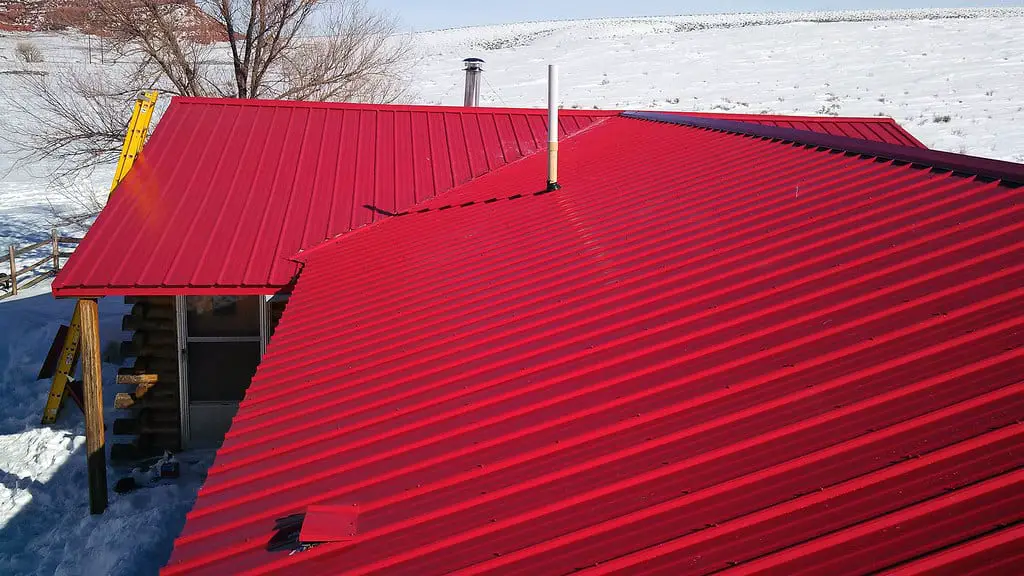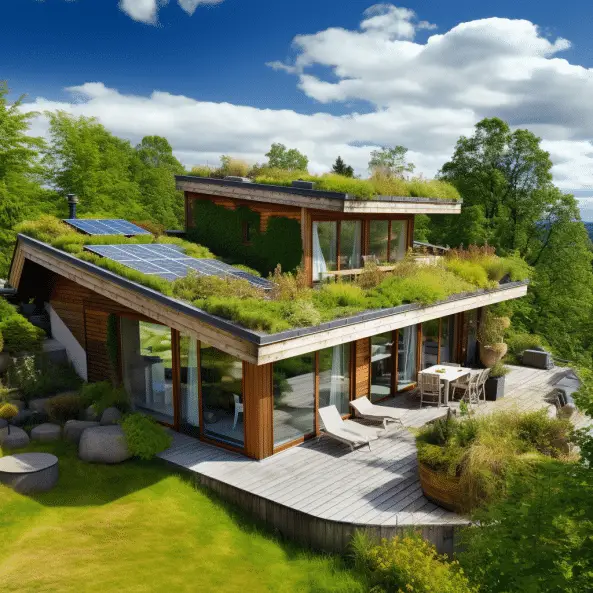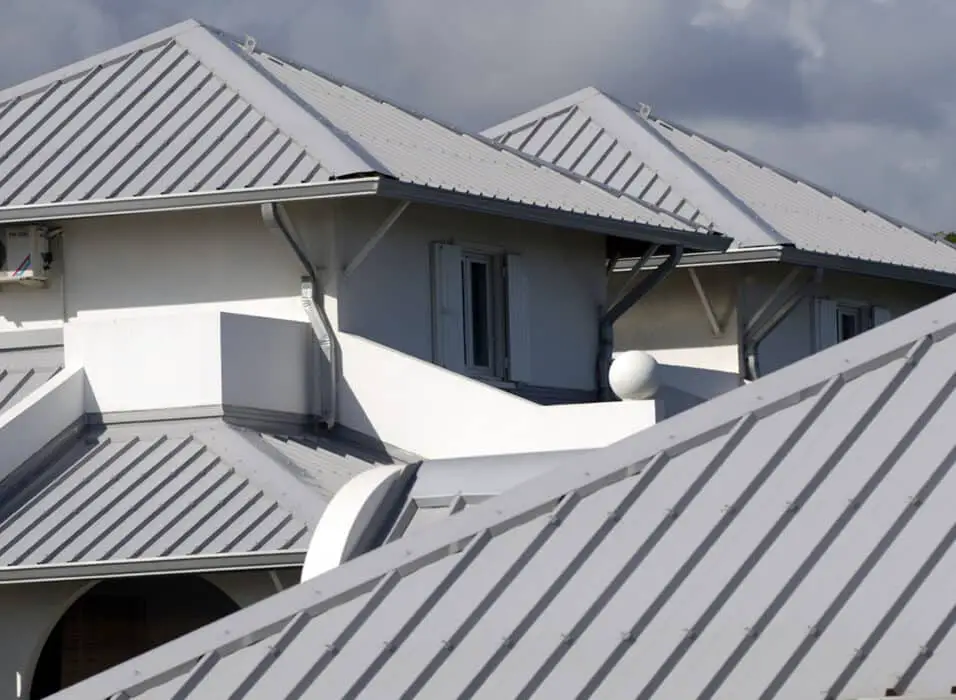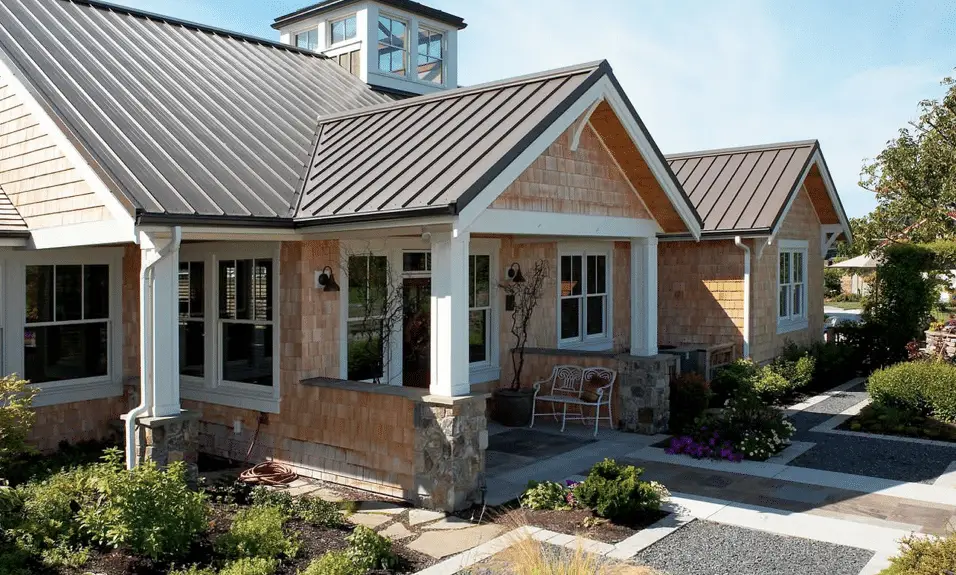What Is The Best Coating For Metal Roof
Introduction
What Is The Best Coating For Metal Roof: Metal roofs are becoming increasingly popular in the construction industry due to their durability, longevity, and energy efficiency. However, to ensure their optimal performance and protection against harsh weather conditions, it is crucial to apply a suitable coating. The right coating not only enhances the aesthetic appeal of the metal roof but also provides an additional layer of protection against corrosion, UV radiation, and other environmental factors. With a wide range of coating options available in the market, choosing the best one for a metal roof can be a daunting task.
When it comes to selecting a coating for a metal roof, it is essential to consider the specific requirements and conditions of the roof. Factors such as the climate, location, and type of metal used in the roof play a significant role in determining the best coating. For instance, if the metal roof is located in a coastal area with high humidity and salt exposure, a coating with excellent corrosion resistance properties would be ideal. On the other hand, if the roof is in an area with extreme temperature variations, a coating that can withstand thermal expansion and contraction would be more suitable.
One of the most popular coating options for metal roofs is paint. Paint coatings not only provide an attractive finish but also offer protection against rust and corrosion. Additionally, some paint coatings come with reflective properties, which can help reduce energy consumption by reflecting sunlight and keeping the roof cooler.
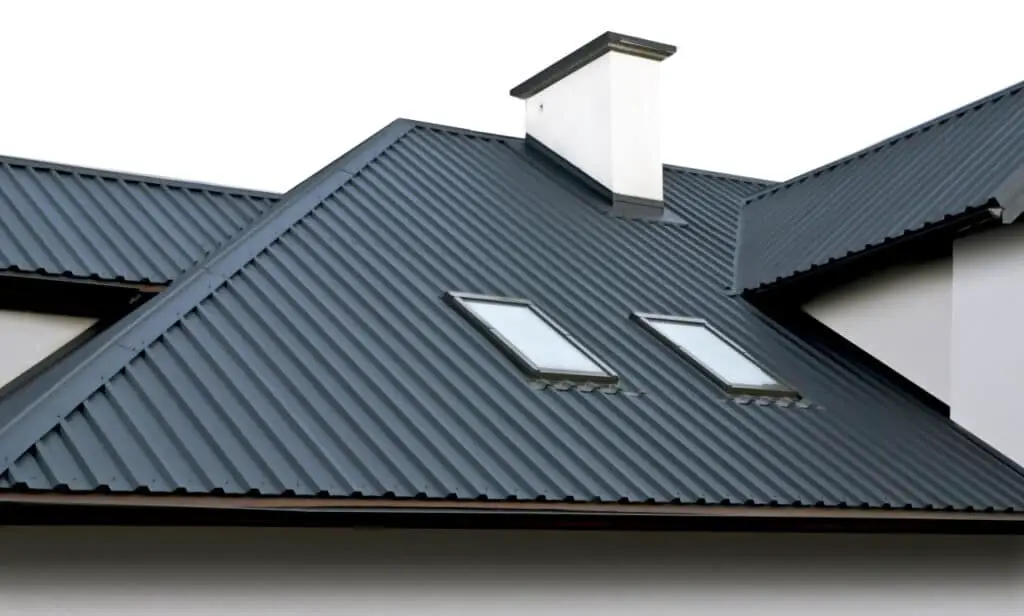
What is the best type of metal roof coating?
Silicone sealant is often the preferred choice for metal roofing systems, as it adheres well to metal and other common construction materials. It also offers excellent moisture and UV protection and has exceptional joint movement capabilities.
A metal roof coating is a protective layer applied to the surface of a metal roof to enhance its durability, longevity, and performance. It acts as a barrier against various environmental factors such as UV rays, moisture, heat, and corrosion. Choosing the best type of metal roof coating is crucial to ensure optimal protection and maintenance of the roof.
There are several factors to consider when determining the best type of metal roof coating. These include the specific requirements of the roof, the climate conditions in the area, the desired aesthetic appearance, and the budget available for the coating. Different types of metal roof coatings offer varying benefits and features, making it essential to select the most suitable option.
Types of Metal Roof Coatings:
Acrylic Coatings: Acrylic coatings are popular due to their versatility and affordability. They provide excellent UV protection, reflectivity, and resistance to water. Acrylic coatings are available in various colors, allowing homeowners to choose an option that complements their building’s aesthetics. However, they may not be as durable as other types of coatings and may require more frequent reapplication.
Silicone Coatings: Silicone coatings are known for their exceptional durability and resistance to extreme weather conditions. They offer excellent UV protection, reflectivity, and resistance to ponding water. Silicone coatings are also highly flexible, allowing them to expand and contract with the metal roof. However, they tend to be more expensive than acrylic coatings.
Polyurethane Coatings: Polyurethane coatings provide superior protection against impact
Abrasion, and chemicals. They offer excellent adhesion to metal surfaces and can withstand harsh weather conditions. Polyurethane coatings are often used in industrial or commercial settings where the roof is exposed to more demanding conditions. However, they can be more expensive than other coating options.
Choosing the best type of metal roof coating depends on various factors such as the specific requirements of the roof, climate conditions, desired aesthetics, and budget. Acrylic coatings are a cost-effective option with good UV protection and reflectivity. Silicone coatings offer exceptional durability and resistance to extreme weather conditions. Polyurethane coatings provide superior protection against impact and chemicals. It is essential to consult with a professional roofing contractor to determine the most suitable coating for your metal roof based on these factors.
What are the longest lasting roof coatings?
Acrylic roof coatings are among the most durable and inexpensive elastomeric coatings in the industry. Comprised of high solids emulsion polymers and potent biocides, these highly reflective coatings are ideally suited for extreme UV climates and provide superior resistance to mildew and dirt accumulation.
Roof coatings are an essential component of any building’s roofing system. They provide protection against various environmental factors such as UV radiation, rain, wind, and temperature fluctuations.
One of the most durable roof coatings available in the market is silicone roof coatings. They form a seamless and flexible membrane that can expand and contract with the roof’s movement, preventing cracks and leaks. Additionally, silicone coatings have a long lifespan, typically lasting up to 20 years or more with proper maintenance.
Another long-lasting option is acrylic roof coatings.
Acrylic coatings are popular due to their affordability and ease of application. They provide excellent protection against UV radiation and can reflect a significant amount of solar heat, reducing energy costs. Acrylic coatings are also resistant to water and mildew, making them suitable for various climates. With proper maintenance, acrylic roof coatings can last up to 15 years or more.
Elastomeric roof coatings are also known for their durability and longevity. These coatings are typically made from a combination of acrylics and polymers, providing excellent flexibility and resistance to cracking. Elastomeric coatings can withstand extreme temperature fluctuations and are highly resistant to UV radiation. They can also bridge small cracks and gaps in the roof, preventing water infiltration. With regular maintenance, elastomeric roof coatings can last up to 15 years or more.
Polyurethane roof coatings are another option to consider for long-lasting protection. These coatings are known for their exceptional durability and resistance to chemicals, making them suitable for industrial and commercial applications. Polyurethane coatings provide a seamless and waterproof membrane that can withstand harsh weather conditions. With proper maintenance, polyurethane roof coatings can last up to 20 years or more.
When it comes to selecting the longest lasting roof coatings, silicone, acrylic, elastomeric, and polyurethane coatings are among the top choices. These coatings offer excellent durability, resistance to environmental factors, and can significantly extend the lifespan of a roof. However, it is important to note that the longevity of a roof coating also depends on proper application, regular maintenance, and adherence to manufacturer’s guidelines. Consulting with a professional roofing contractor can help determine the most suitable coating for specific roofing needs and ensure its longevity.
What is the best roof sealer for metal roof?
Silicone
Silicone— Silicone sealants are frequently recommended for metal roofs. They offer good protection against moisture and UV rays, so they work well in any weather condition. But with being the best product comes a higher price tag. Rubber— This liquid rubber comes in a thin, water-based formula that’s easy to apply.
A metal roof is a durable and long-lasting option for homeowners. However, to ensure its longevity and protect it from various environmental factors, it is essential to apply a roof sealer. Choosing the best roof sealer for a metal roof can be a daunting task, considering the wide range of options available in the market. In this article, we will discuss some of the top roof sealers specifically designed for metal roofs.
Benefits of using a roof sealer:
Before diving into the best roof sealers for metal roofs, it is important to understand the benefits of using a roof sealer. A roof sealer acts as a protective layer, preventing water leakage, rust, and corrosion. It also helps in reducing the impact of UV rays, which can cause the metal to expand and contract, leading to cracks and leaks. Additionally, a roof sealer enhances the overall appearance of the metal roof, making it look more appealing.
Top roof sealers for metal roofs:
Silicone roof sealers: Silicone-based roof sealers are highly recommended for metal roofs due to their excellent waterproofing properties. They create a strong barrier against water penetration and are resistant to extreme weather conditions. Silicone sealers also provide UV protection and are known for their long-lasting performance.
Acrylic roof sealers: Acrylic roof sealers are another popular choice for metal roofs. They offer good waterproofing capabilities and are easy to apply. Acrylic sealers are available in various colors, allowing homeowners to choose a shade that complements their home’s exterior. They also provide UV protection and help in reducing energy costs by reflecting sunlight.
Choosing the best roof sealer for a metal roof is crucial to ensure its durability and protection. Silicone and acrylic roof sealers are among the top choices due to their excellent waterproofing properties and UV resistance. However, it is important to consider factors such as the climate, budget, and specific requirements before making a final decision. Consulting with a professional or seeking advice from experts in the field can also help in selecting the most suitable roof sealer for your metal roof.
What are the best roofing coatings?
Silicone. Silicone roof coatings are the preferred choice when it comes to UV protection and resistance to ponding water. They erode much slower than other coatings without becoming brittle or hard. Modern silicone formulations have a high-solids content that typically exceeds 90 percent.
Roofing coatings play a crucial role in protecting buildings from various environmental factors such as rain, UV radiation, and temperature fluctuations. They provide an additional layer of protection to the roof, extending its lifespan and reducing maintenance costs. With numerous options available in the market, it can be challenging to determine the best roofing coatings for your specific needs. In this article, we will explore some of the top choices and discuss their benefits and applications.
Elastomeric coatings provide excellent resistance against water, UV radiation, and chemical damage. They are suitable for various roof types, including metal, concrete, and single-ply membranes. Additionally, elastomeric coatings can help improve energy efficiency by reflecting sunlight and reducing heat transfer into the building.
Acrylic coatings are easy to apply and provide a seamless, protective layer on the roof surface. They are available in various colors, allowing for customization and aesthetic appeal. Moreover, acrylic coatings are environmentally friendly and can help reduce energy consumption by reflecting sunlight.
Which waterproofing is best for roof?
When it comes to protecting your roof from water damage, choosing the right waterproofing solution is crucial. With a wide range of options available in the market, it can be overwhelming to determine which one is the best for your roof. In this article, we will explore various waterproofing methods and discuss their effectiveness in safeguarding your roof from water infiltration.
Types of Waterproofing:
There are several types of waterproofing techniques available for roofs, each with its own set of advantages and disadvantages. One popular method is the application of liquid waterproofing membranes. These membranes are typically made of a combination of polymers and bitumen, providing a seamless and durable barrier against water penetration. They can be easily applied to various roof surfaces, including concrete, metal, and asphalt.
Another commonly used waterproofing method is the installation of bituminous sheet membranes. These membranes consist of layers of bitumen and reinforcement materials, such as fiberglass or polyester. They are highly effective in preventing water leakage and can withstand extreme weather conditions. Bituminous sheet membranes are often used in flat or low-sloped roofs.
Benefits of Waterproofing:
Furthermore, waterproofing your roof can save you money in the long run. By preventing water infiltration, you can avoid costly repairs and potential damage to your property’s interior. It also adds value to your home, as potential buyers are more likely to be attracted to a property with a well-maintained and protected roof.
Choosing the best waterproofing solution for your roof is essential to ensure its longevity and protect your property from water damage. Liquid waterproofing membranes and bituminous sheet membranes are two popular options that offer effective protection against water infiltration. By investing in a reliable waterproofing system, you can enjoy the benefits of a longer-lasting roof, improved energy efficiency, and cost savings in the long term.
There are several types of coatings available for metal roofs
Each offering unique benefits and characteristics. One common type is acrylic coating, which provides excellent protection against UV rays and helps to prevent rust and corrosion.
Another popular option is silicone coating, which offers exceptional durability and resistance to weathering. Silicone coatings are highly reflective, helping to reduce energy costs by keeping the roof cooler. They also provide excellent waterproofing properties, ensuring that the metal roof remains leak-free.
Elastomeric coatings also offer excellent resistance to UV rays and can help to improve the energy efficiency of the building.
How do the various coatings differ in terms of durability and longevity?
The durability and longevity of metal roof coatings can vary depending on the type of coating used. There are several different types of coatings available for metal roofs, each with its own unique properties and benefits.
Acrylic coatings are known for their durability and resistance to weathering. They provide excellent protection against UV rays and can help extend the lifespan of a metal roof. However, they may not be as effective in extreme climates or areas with high levels of pollution.
Polyurethane coatings are highly durable and offer excellent resistance to abrasion and impact. They are often used in high-traffic areas or in regions prone to severe weather conditions. Polyurethane coatings also have good flexibility, allowing them to expand and contract with the metal roof without cracking or peeling.
Fluoropolymer coatings, such as PVDF (polyvinylidene fluoride), are known for their exceptional durability and resistance to fading. They have excellent color retention and can withstand prolonged exposure to harsh environmental conditions, including extreme temperatures and chemical pollutants. Fluoropolymer coatings are often recommended for metal roofs in coastal areas or regions with high levels of air pollution.
In summary, the durability and longevity of metal roof coatings depend on the specific type of coating used.
What factors should be considered when selecting a coating for a metal roof?
Another factor to consider is the desired level of durability and longevity. Some coatings offer enhanced durability and can withstand harsh weather conditions, while others may require more frequent maintenance and reapplication.
Additionally, the compatibility of the coating with the metal substrate should be evaluated. Certain coatings may be more suitable for specific types of metal roofs, such as steel or aluminum. It is essential to choose a coating that is compatible with the metal substrate to ensure proper adhesion and prevent any potential issues.
Are there any specific coatings that are recommended for certain climates or environmental conditions?
When selecting a coating for a metal roof, it is crucial to consider the specific climate and environmental conditions in which the roof will be exposed. Different coatings offer varying levels of protection and performance in different climates. For example, in hot and sunny climates, coatings with high reflectivity and emissivity are recommended to minimize heat absorption and reduce energy costs for cooling. These coatings, often referred to as cool roof coatings, help to keep the roof surface cooler and prevent excessive heat transfer into the building.
In regions with high humidity or frequent rainfall, it is important to choose coatings that have excellent waterproofing properties. These coatings should have a strong resistance to water penetration and be able to withstand prolonged exposure to moisture without deteriorating. Additionally, in areas prone to strong winds or hurricanes, coatings with high wind resistance and superior adhesion are recommended to ensure the roof remains intact and secure during severe weather events.
Are there any specific coatings that are recommended for certain climates or environmental conditions?
Yes, there are specific coatings that are recommended for certain climates or environmental conditions when it comes to metal roofs. The choice of coating depends on factors such as temperature variations, humidity levels, exposure to saltwater or chemicals, and the presence of pollutants in the air. Different coatings offer varying levels of protection and performance in different conditions.
In hot and sunny climates, coatings with high reflectivity and emissivity are recommended to reduce heat absorption and keep the building cooler. These coatings, often referred to as cool roof coatings, help to minimize energy consumption for cooling and extend the lifespan of the roof by reducing thermal stress. They are typically light in color and have special additives that enhance their reflective properties.
On the other hand, in areas with high levels of moisture or saltwater exposure, coatings with excellent corrosion resistance are crucial. These coatings are designed to protect the metal roof from rust and deterioration caused by the corrosive effects of water and salt. They often contain special inhibitors and sealants that create a barrier against moisture and prevent the formation of rust.
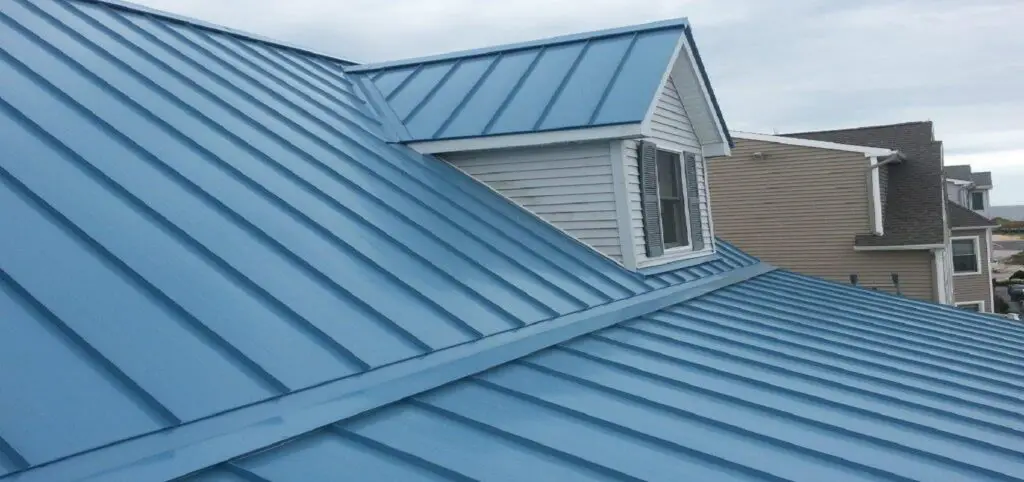
Conclusion
After conducting extensive research on the best coating for metal roofs, it is clear that there is no one-size-fits-all answer to this question. The ideal coating for a metal roof depends on various factors such as the climate, budget, and specific requirements of the roof. However, several coatings have proven to be highly effective in protecting metal roofs and extending their lifespan.
One of the most popular and widely recommended coatings for metal roofs is acrylic coating. Acrylic coatings offer excellent durability and weather resistance, making them suitable for a wide range of climates. They provide a protective barrier against UV rays, moisture, and other environmental elements that can cause damage to the metal roof. Additionally, acrylic coatings are relatively easy to apply and maintain, making them a cost-effective choice for many homeowners and businesses.
Another commonly used coating for metal roofs is silicone coating. They can withstand expansion and contraction of the metal roof, preventing cracks and leaks. Silicone coatings also have excellent water resistance properties, making them ideal for areas with heavy rainfall or high humidity.
Elastomeric coatings are also worth considering for metal roofs. These coatings are highly flexible and can stretch and contract with the metal roof, providing long-lasting protection against cracks and leaks. They also offer good UV resistance and can help reduce energy costs by reflecting sunlight away from the roof.
Choosing the best coating for a metal roof requires careful consideration of various factors. Acrylic, silicone, and elastomeric coatings are all viable options, each with its own set of advantages and considerations. By selecting the right coating, homeowners and businesses can ensure the longevity and protection of their metal roofs, ultimately saving on maintenance and replacement costs in the long run.



